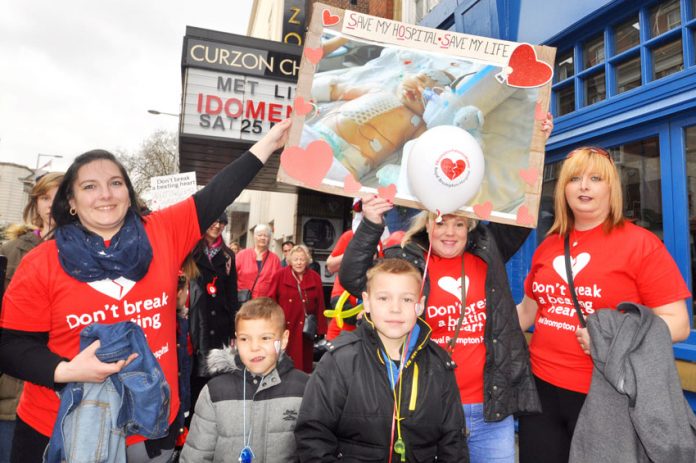
THIRTEEN-year-old Chloe Narbonne would have died if it wasn’t for a revolutionary pioneering operation that gave her a new artificial heart, all thanks to the complex children’s heart surgery unit at the Royal Brompton Hospital in Chelsea, south west London, whose services now face the axe because of Tory cuts.
Chloe has made history as the youngest person in Europe to receive an artificial heart and is living proof that the closure plan must not go ahead. Doctors at the Royal Brompton saved her life by performing a UK-first operation that kept her alive for several weeks on an artificial heart while she waited for a donated organ.
Last month over a thousand furious local residents, children saved by the hospital, their friends and families, as well as doctors, nurses and NHS staff marched through the streets of south west London demanding that the complex children’s heart surgery services remain open.
Chloe, who was 12 at the time last May, was close to death after a transplant failed. But the medical team performed a nine-hour procedure to insert an artificial heart – a device that keeps blood pumping through the body.
Doctor André Simon, the director of heart and lung transplantation at the Royal Brompton and Harefield specialist hospitals, and 30 NHS staff were behind the success of what doctors are calling an ‘extremely risky’ operation.
Chloe was transferred to the Royal Brompton with an open heart while on a life-saving extracorporeal membrane oxygenation machine (ECMO), which delivers oxygen to a patient from outside the body.
Although Harefield Hospital is the Trust’s transplant centre, the operation took place at Royal Brompton, because its dedicated paediatric intensive care unit – which specialises in patients with heart and lung conditions – could provide vital round-the-clock care following Chloe’s operation.
The transplant and mechanical support team from Harefield Hospital, including specialist operating theatre nurses and anaesthetists, and all the equipment and surgical instruments required to transplant the total artificial heart, were transferred from Harefield to Royal Brompton, while Dr Simon flew back early from a conference in the US to operate.
Dr Margarita Burmester, paediatric intensive care consultant, said: ‘The teamwork was fantastic. Chloe undoubtedly owes her life to that teamwork.’ Chloe, now 13, from Worcester, received a human heart a few weeks later. At a ‘consultation event for staff’ at the Royal Brompton on Friday, 31 March where the case for closure was outlined, furious staff argued passionately for the opposite, rightly insisting that the services at the Royal Brompton remain open.
Professor Michael Gatzoulis, consultant cardiologist and professor of cardiology and congenital heart disease at the National Heart and Lung Institute, Imperial College London, said: ‘We have the largest training programme for adult Congenital Heart Disease (CHD) in the world. Our research is clinical, it’s not based in a laboratory.
‘Our work at Royal Brompton has transformed patient care in the UK and the rest of the world.
‘Would you now accept that it would have an adverse impact on research, and therefore an immediate impact on patient care, which is the very thing you are trying to improve?’
Dr Richard Grocott-Mason said: ‘It makes no sense to try and improve care by closing one of the biggest, well-performing services, or by destroying research teams that are leading the way in finding new treatments for the future.’